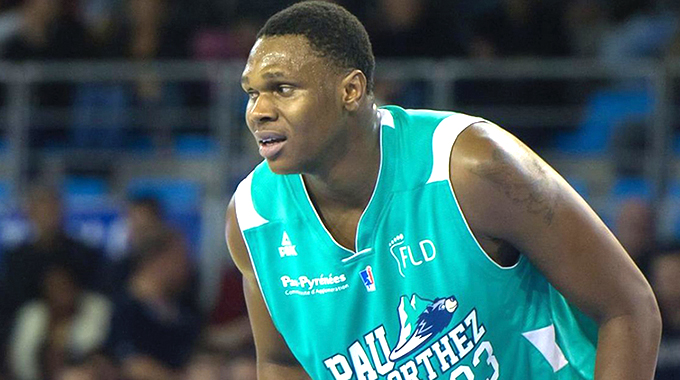‘There are plenty of opportunities in local football’

Joseph Nkani
Special Correspondent
RECENTLY I had an opportunity to be part of a team of passionate football personalities who hosted conversations around the beautiful game of football in Zimbabwe, under the banner Zimbabwe Football Forum.
The main objective of the one-day conference, held at a local Harare hotel, was to facilitate a meeting between various football stakeholders with a view to look into the local game then help professionalise and transform the local game.
The forum was attended by delegates drawn from the Sports and Recreation Commission, representatives from some local PSL clubs, local football fans association as well as the local players’ association. The media fraternity was also represented by various print and electronic media houses. There was also a delegate from the DRC who came into the country to attend the forum with a view to watch, learn and then activate similar conversations in his home country.
Speakers were drawn from various strategic sports business entities, academics and various industry and commerce technocrats.
Setting the tone for the forum was a Gweru-based MSU lecturer who shared his thoughts on the history and state of football in Zimbabwe.
He argued that all sport, including football, is big business and as such it must be viewed as part of industry. Football is part of the economy and its success or failure must be measured against the best business culture, strategies and management.
Football must not be viewed as a pastime or just as a physical activity where people just gather and interact.
Taking a closer look into football in general, the view is that there are four main pillars of the game. On one end it is the players themselves who are bound together into a team administered as a football club. On the other hand, there are fans who pay to come and watch their favourite stars and team play the game.
The third pillar is the business aspect feeding into and from all the activities around the players, the fans, the clubs and the match day activities. All these three forces attract or repel each other along the way. Then there is fourth force which is the media.
The media comes in to package the game as a product and sells it out there to various football followers local, far and wide. All these forces need each other more than they don’t.
Players or clubs need fans and all the revenue that can be generated by simply being in the business of playing football.
Business or entrepreneurs need both the clubs and fans who support the game directly or indirectly. Businesses are attracted to clubs because football in general and clubs in particular have the crowd.
So now with this whole football ecosystem clearly defined, there arises a need for the various stakeholders to tap into each other and unlock revenue by creating and presenting value that will attract the other entities around the football business.
The forum learnt from another speaker that local clubs have not fully exploited or commercialised their brands in order to generate revenue from multiple options they can activate.
Another presenter argued that football offered multiple opportunities and football entrepreneurs were challenged to have the ability to recognise sport value, thereby activating business opportunities. The general thread in his presentation was the call for football entrepreneurs to rise up and extract revenue from the game.
He suggested that opportunities are there for various clusters which he listed as football wear entrepreneurs, football investors, football franchise entrepreneurs, football club entrepreneurs, football coach entrepreneurs, football facilities entrepreneurs, football academy entrepreneurs, football media entrepreneurs and football technology entrepreneurs.
What came out more striking for me was what he termed “football player entrepreneur” where an individual player could make deliberate strides to package himself as a brand that can go on to attract personal endorsements and commercial deals.
In all this, his call was for stakeholders to develop football business skills, which is a separate conversation I can discuss at length.
Another topical issue is that of revenue generation for football clubs. There are revenue opportunities for clubs to tap from such as commercial partnership arrangements, broadcasting revenue and match day activities.
Sadly, clubs relying only on gate takings will surely experience more challenges and their survival will be heavily threatened.
Match day experience starts from how fans access the stadium, entry protocols for both pedestrian and vehicle traffic. Vehicle parking fees can also be revenue for the club.
Entertainment and fan engagement at the stadium can also unlock revenue for the club as more fans will look forward to the next match day experience in larger numbers thereby unlocking more revenue streams for clubs.
Match day experience can also be packaged according to the different sections of the stadium and relative return. Example, a premium VIP ticket should not just provide a seat and just end there. Provide top-end hospitality services which will even compel high-end clientele to willingly pay high cost VIP tickets, because they see and experience value for their money. It then defeats the purpose when a VIP ticket buyer gets to sit next to a fan whose behaviour may not be appropriate for the VIP lounge in both behaviour and language.
So clubs are called upon to look at such small but huge effect elements. Match day experience is a 360 degree value proposition for fans, which goes beyond the match results which many clubs may have as their only focus area.
Clubs are therefore challenged to look at their match day experience at every contact point with their fans. Fans should not be taken for granted that once they pay at the turnstiles, the relationship with the club ends.
Questions should be asked to establish what else will be fan expectations once they enter a stadium on match day. Fan expectations range from venue access, their safety and security, entertainment, refreshments and hospitality facilities. In this instance fans can be classified broadly to include families, women and school children, the disabled and senior citizens.
Clubs also have an opportunity to earn additional revenue from the fans, beyond gate takings by providing holistic match day experience.
Is it not ironic that in Zimbabwe the Premier League is sponsored by a beverages entity but their products are not easily available or are not allowed within the stadium? Beer is not allowed within the stadium. What stop clubs from earning more revenue through beverage sales in plastic cups?
Special hospitality areas can be established behind the terraces at the stadium thereby unlocking further revenue for clubs through beverages and food sales. Fans could then enjoy coming early to the stadium and still be engaged in some way before kick-off.
There are strong submissions that clubs can upscale their fan engagement to extend beyond the match day encounter.
How much do local clubs engage their fans midweek in-between matches? Using digital platforms there are opportunities to continuously engage fans through club social media platforms on what is happening at training, what players get up to outside training and club corporate social investment initiatives.
Such efforts can help bring the club’s brand to communities and encourage fan base growth. Imagine football stars visiting schools and youth centres and engaging the young minds which is a subtle tool to creating fans for the future thereby ensuring sustained brand loyalty over generations.
** Joseph Nkani is a Marketing and Public Relations Consultant. He is also a part-time football pundit/analyst for the ZBC.







Comments